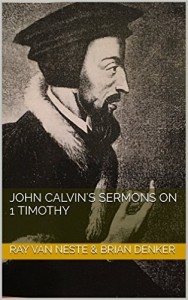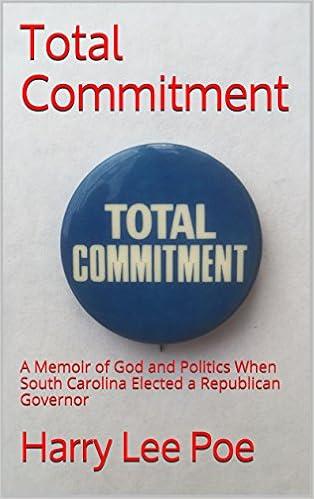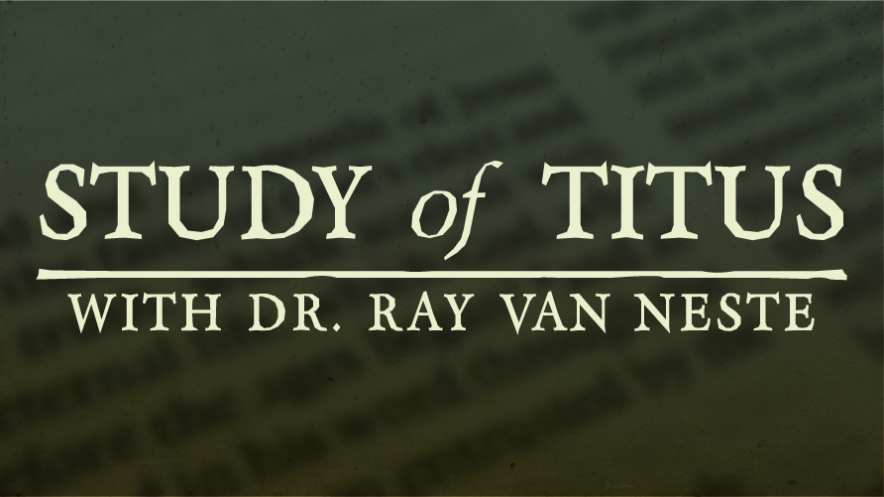Saturday, the settled gloom
Speaks only doom
Our Lord sealed in the tomb.
Our hopes were high.
Why did he have to die?
Was it all a lie?
Stumble through Sabbath, weak,
Everything so bleak
What to do at the 1st of the week?
Good Friday
Keep a-Goin’
My poem of the week this week has been one of my favorites from Frank L. Stanton (February 22, 1857- January 7, 1927), who was the first poet laureate of the state of Georgia. I appreciate the “down home”, everyday life themes of his poems which are often sprinkled with what used to be common sense wisdom. This one is great on perseverance.
Keep a-Goin’
If you strike a thorn or rose,
Keep a-goin’!
If it hails or if it snows,
Keep a-goin’!
‘Taint no use to sit an’ whine
When the fish ain’t on your line;
Bait your hook an’ keep a-tryin’―
Keep a-goin’!
When the weather kills your crop,
Keep a-goin’!
Though ‘tis work to reach the top,
Keep a-goin’!
S’pose you’re out o’ ev’ry dime,
Gittin’ broke ain’t any crime;
Tell the world you’re feeling’ prime―
Keep a-goin’!
When it looks like all is up,
Keep a-goin’!
Drain the sweetness from the cup,
Keep a-goin’!
See the wild birds on the wing,
Hear the bells that sweetly ring,
When you feel like urgin’ sing―
Keep a-goin’!
Charles Dickens’ The Chimes & Comforting Those Who Mourn
Dickens is good to read for reminders of what all you have to be grateful for and for reminers of the plight of the working poor.
The Chimes is not as good as A Christmas Carol, but has some similar themes and ideas (man shown his future, warned by ghosts).
One of the more striking passages provides a portrait of a very common but very poor approach to comforting people in grief. A poor woman with a young child has just watched her husband die, and her landlord and landlady approach comfort in different ways.
“Mrs. Tugby tried to comfort her with kindness. Mr. Tugby tried philosophy.
‘Come, come!’ he said, with his hands in his pockets, ‘you mustn’t give way, you know. That won’t do. You must fight up. What would have become of me if I had given way when I was porter, and we had as many as six runaway carriage-doubles at our door in one night! But, I fell back upon my strength of mind, and didn’t open it!’”
This is a reminder of one reason it is helpful for pastors to read good fiction- good fiction provides truthful snapshots of the human condition. Too often men, in particular, try to comfort the way Mr. Tugby did. In the story we are shown also that Mr. Tugby speaks this way because he thinks too highly of himself and really does not care for those in need. This is not the pastoral heart and not proper pastoral comfort. Tugby sounds a bit like Job’s friends. We must weep with those who weep (Rom 12:15).
More Endorsements for New Edition of Calvin’s Sermons on 1 Timothy
Since yesterday’s post, three more kind endorsements of the new edition of Calvin’s sermons on 1 Timothy have come in.
“John Calvin’s sermons are the headwaters of the Reformation’s rediscovery of apostolic preaching with the Holy Spirit sent down from heaven. It is all here; exegesis and application, believers and unbelievers are addressed, exhorted and beseeched to hear and obey. The messages are declared with divine grace through Jesus Christ. God is honoured, and the people of God edified.”
– Geoff Thomas, Pastor, Alfred Place Baptist Church, Wales
“For many years, I have turned with great profit to the facsimile edition of John Calvin’s Sermons on the Pastoral Epistles. They are faithful, profound and helpful expositions of the text of Scripture. This new edition makes these important sermons more accessible and useful for the Twenty-first century. Scholars, pastors and lay people will all profit immensely from a careful reading of this book.”
– James M. Renihan, Dean, Professor of Historical Theology, Institute of Reformed Baptist Studies
“This updated edition of Calvin’s sermons on Paul’s first letter to Timothy is a labor of love by Ray Van Neste. The financial proceeds from this volume will never repay the years of work he invested in its preparation. So why did he make the effort? Well, is a man never to do anything for the sake of Christ and His kingdom that offers little earthly reward? God help him, if not. Besides, Dr. Van Neste knows that these sermons, which have been in print for half a millennium, will continue to have an enduring appeal to many of Jesus’s followers in every generation. This will be especially so among those who are faithful shepherds of Christ’s flock and who have the responsibility to feed not only their own souls, but also the souls of Christ’s sheep. Long after Dr. Van Neste has gone to enjoy his eternal reward, these sermons will still bless the church. I am grateful for scholars like Ray Van Neste who gladly use their education, skills, and time ‘for the joy set before him’.”
– Don Whitney, Professor of Biblical Spirituality, The Southern Baptist Theological Seminary
Calvin’s Sermons on 1 Timothy, New Edition
 I have finally published the new edition of Calvin’s sermons on 1 Timothy which Brian Denker and I worked on for so long. Due to its size (330,000+ words) the digital format seemed a good way to go, so it is published through Amazon for Kindle. The cost is only $2.99 for all 54 sermons.
I have finally published the new edition of Calvin’s sermons on 1 Timothy which Brian Denker and I worked on for so long. Due to its size (330,000+ words) the digital format seemed a good way to go, so it is published through Amazon for Kindle. The cost is only $2.99 for all 54 sermons.
These sermons reveal Calvin’s pastoral heart, his evangelistic fervor, and his devotion to the word of God. I have posted my introduction and a sample sermon for free so you can get a feel for the book.
I have pasted in below the commendations for the book which I have received. Howard Marshall had enthusiastically responded to my email saying he wanted to write a commendation, but sadly he passed away before being able to write it. Howard commented on how Andrew Walls read from these sermons (directly from the French original) at one of the early InterVarsity meetings he attended as a student.
I hope these sermons can encourage, challenge, and bless others as they have me.
“In this new edition of Calvin’s sermons on the Pastoral Epistles we meet the Reformer at his liveliest and most compelling. The subject matter lends itself to practical application, and here we see Calvin at the height of his pastoral powers. This new edition brings the original to life for our generation and we must hope that it will be widely read and used by preachers everywhere.”
– Gerald Bray, Research Professor of Divinity, Beeson Divinity School, Samford University
“So many think of John Calvin as a theologian, as one who lived separate from the people writing theological books in splendid isolation. But Calvin was a pastor who was involved in the rough and tumble of everyday life. Above all else, he was a preacher, one who proclaimed the word of God to the people of God. We see in these sermons the heart of a preacher as he exhorts and instructs his congregation. Calvin’s theology was not abstract to him; it was meant to be believed and lived out in the home and in the market place. In these sermons on 1 Timothy we see Calvin the pastor at work as he proclaims God’s word for the church of Jesus Christ. Read and be instructed, challenged, encouraged, convicted, and changed.”
– Tom Schreiner, James Buchanan Harrison Professor of New Testament Interpretation and Professor of Biblical Theology, Southern Baptist Theological Seminary
“Ray Van Neste has done English readers a great service by making John Calvin’s sermons on 1 Timothy readily accessible. The 1579 English translation is simply too intimidating for many modern readers to tackle leaving the theological and pastoral wisdom of the reformer in these sermons virtually locked away. This edition is completely retyped using modern words and phrases to maintain the original English meaning. Where serious questions remained these then were checked against the original French in which the sermons first appeared. A helpful introduction which includes a suggested approach to reading the sermons makes this work all the more valuable. Those who know Calvin only as a theologian will discover in these sermons that he was a first and foremost a tender, compassionate and evangelist pastor. I hope this book gains a wide reading.”
– Tom Ascol, Pastor, Grace Baptist Church, Cape Coral, FL
“Today’s preachers have much to gain by reading and studying sermons from past masters of the pulpit. Unfortunately, some great preachers of the past are relatively inaccessible because of differences of language. Thus, Ray Van Neste and Brian Denker have done us a great service by editing and updating the 1579 English edition of Calvin’s Sermons on 1 Timothy, making them accessible to 21st century readers. In these 54 sermons, Calvin is revealed not to be the austere theologian of modern caricatures, but a loving, caring pastor who wanted his people to understand the truth of God’s Word. This significant collection will be of interest not only to students of Calvin but to any reader interested in better understanding Paul’s inspired first letter to his protégé Timothy.”
– Michael Duduit, Executive Editor, Preaching magazine, and Dean of the College of Christian Studies & Clamp Divinity School, Anderson University, Anderson, SC
Fun, Fascinating Read from Hal Poe
 This past weekend I finished reading the latest book from my friend & colleague, Hal Poe. Total Commitment: A Memoir of God and Politics When South Carolina Elected a Republican Governor is a fascinating read on so many levels. If you know Hal, then hearing that he has published his memoirs from his days in politics is you need to know!
This past weekend I finished reading the latest book from my friend & colleague, Hal Poe. Total Commitment: A Memoir of God and Politics When South Carolina Elected a Republican Governor is a fascinating read on so many levels. If you know Hal, then hearing that he has published his memoirs from his days in politics is you need to know!
In case you don’t know him, the story of the 1974 governor’s race in South Carolina bears striking similarities to the presidential race this year. Additionally, Hal tells of his call to ministry in the midst of what was going around him. Then, the book is filled with wonderful stories from a masterful story-teller relishing friendship, fellowship, and the beauties of the South Carolina countryside.
Here is the review I posted on Amazon:
This was a delightful read! Other reviewers have rightly pointed out the book’s value in regard to politics and faith. I affirm those points, but what I enjoyed most was the sheer delight of reading. Hal is a consummate story teller and he relishes the telling of these tales. Brimming with delight in nature, the South, friendship, food and travel, this book is just so much fun!
At such a great price, you can’t go wrong. You’ll love reading this, unless, of course, you despise beauty, friendship and stories. In that case, don’t buy it.
Scalia and the Legacy of Teachers
As a teacher- and that seems to be a key way in which Justice Scalia saw himself- I found this picture to be deeply moving. In case you haven’t already seen it, these are former clerks of Justice Scalia’s (accounts varied on the number, as many as 180) lined up ready to receive his body.
In an age which has largely forgotten honor, this is a beautiful portrait of it. This is also a portrait of why we teach. Of course there are lectures to prepare, papers to grade, and so forth, but those are the details not the goal. We teach to shape lives, to form thinking that will inform living that will transform the individual and society. Our success is bound up in our students, in what they do with what we give them. Thus we must invest in them well. And when I see men drop what they’re doing, come, line up and wait like this to receive the body of their mentor, I think, “Here is a man who made an impact on the lives of those he mentored.”
Lord, grant me such success.
Jesus! What a Friend for sinners!
We sang this wonderful hymn at church yesterday, and I knew I wanted it to be my poem of the week. It beautifully makes the point that the all holy Jesus graciously decided to be a friend for sinners, to love us and redeem us. Then it points out in helpful particularity various ways in which he is our refuge and hope.
It was good for my soul to sing this once more, and I hope it is helpful to you.
Jesus! what a Friend for sinners!
Jesus! Lover of my soul;
Friends may fail me, foes assail me,
He, my Savior, makes me whole.Refrain
Hallelujah! what a Savior!
Hallelujah! what a Friend!
Saving, helping, keeping, loving,
He is with me to the end.Jesus! what a Strength in weakness!
Let me hide myself in Him.
Tempted, tried, and sometimes failing,
He, my Strength, my victory wins.Jesus! what a Help in sorrow!
While the billows over me roll,
Even when my heart is breaking,
He, my Comfort, helps my soul.Jesus! what a Guide and Keeper!
While the tempest still is high,
Storms about me, night overtakes me,
He, my Pilot, hears my cry.Jesus! I do now receive Him,
More than all in Him I find.
He hath granted me forgiveness,
I am His, and He is mine.– J. Wilbur Chapman, 1910.
Teaching Through Titus

I recently taught a 3 part series through the letter to Titus at FBC Jackson, TN, and the audio of each session is available here.


